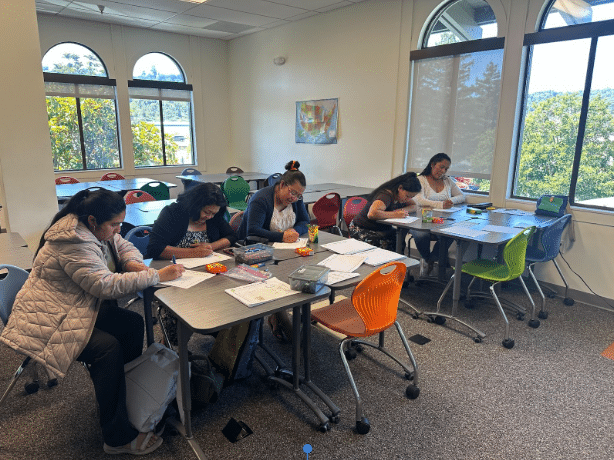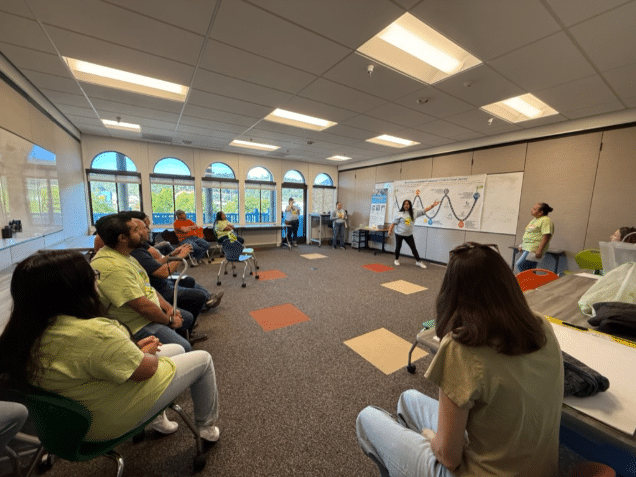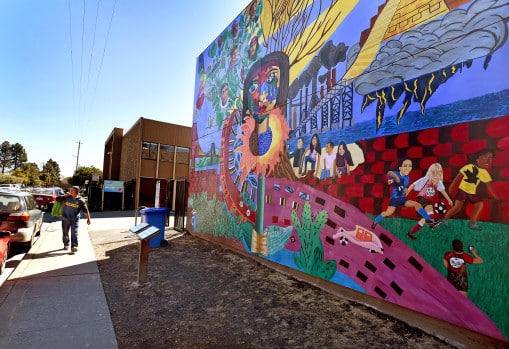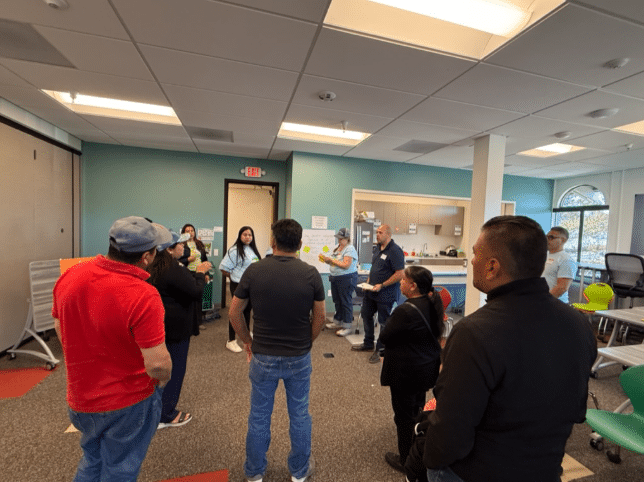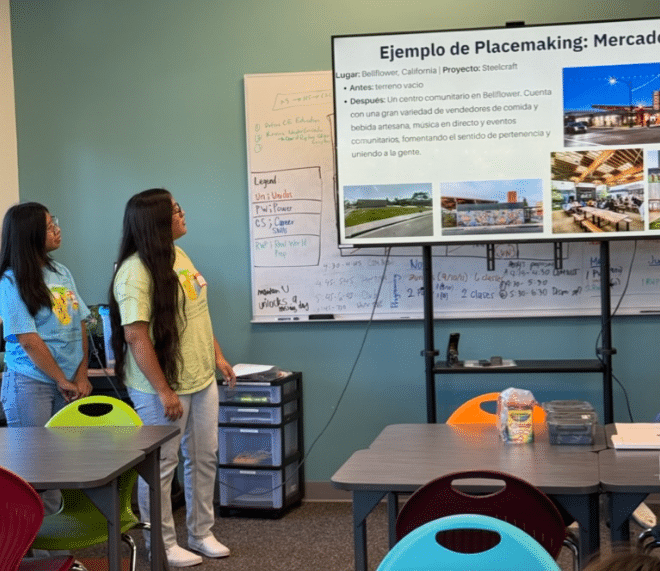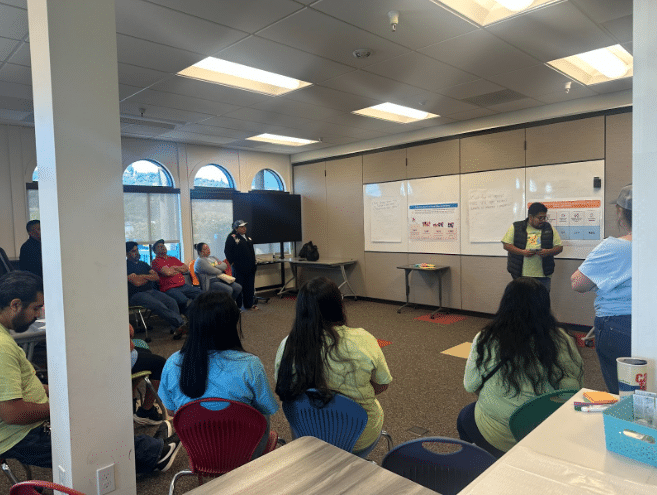Canal Families Share Their Vision for Education and Community Spaces
September 22, 2025

After the successful launch last fall and the second community fair in May, the Nuestro Canal, Nuestro Futuro (NCNF) initiative hosted a community workshop in collaboration with Marin Promise Partnership Canal Promise Neighborhood on August 2nd, 2025. You can read more about the Promise neighborhood effort here. This marks an exciting turning point in centralized resident engagement between our two efforts to ultimately bring investment across education and community development for Canal families to thrive. This event gathered community input about educational opportunities and placemaking in the Canal neighborhood, and to continue envisioning the Canal’s future. Placemaking is a form of participatory and democratic community development where existing underutilized spaces are transformed to serve the needs and desires of residents.
The community workshop was held at the 711 Grand Avenue classrooms, with three targeted stations on: Cradle to Career Journey, Early learning, and Placemaking. The following are highlights of the community data analysis. A complete data analysis is available here. A total of 55 people, 33 adults who participated in the stations and 20 children who participated in the dedicated children’s area.
Cradle to Career Journey
Residents were invited to share their experiences along a cradle-to-career journey map that illustrated the key milestones from kindergarten readiness to a stable career, as well as the benchmarks of student success. Residents were asked two questions: 1) What barriers do you or your community members experience along this journey? 2) What currently supports you in achieving these educational goals in the community, or what would you like to see more of?
Families identified barriers at every stage, such as trouble accessing resources and navigating systems, limited childcare capacity, and the high cost of living. Despite these obstacles, families identified strong community assets, including organizations such as Canal Alliance, 10,000 Degrees, Huckleberry, and Next Generation Scholars. To strengthen support, residents recommended expanding affordable childcare, afterschool and summer programs, increasing parental and community engagement, and providing greater financial planning and support for college.
Early Learning
At the Early Learning activity, participants reviewed information about the Canal Early Learning Collaborative Action Network (ELCAN), neighborhood population trends, and available child care spaces. Families then engaged with four guiding questions designed to elevate their lived experience and wisdom as parents of young children in the Canal.
The feedback revealed consistent themes: families face significant barriers, including limited affordable childcare, transportation challenges, housing instability, language barriers, and economic pressures. While parents value programs like Parent Services Project, Community Action Marin, Marin Community Clinics services, and Charla Café, they call for expanding child care capacity, improving special education services, providing culturally responsive parent education, and strengthening prenatal and postpartum supports. These insights highlight opportunities to create more flexible, affordable, and inclusive early learning systems in the Canal neighborhood.
Placemaking
At the Nuestro Canal Nuestro Futuro station, participants worked on a placemaking activity. Community members shared ideas for recreation, placemaking, or other concepts related to the Canal. As we look forward to the future, this information will provide us with potential uses, features, and programming for future placemaking sites.
The 31 worksheet submissions touched on five of the seven NCNF community priorities: health and safety, cultural preservation, economic development, and education. Most attendees shared their ideas for a market. These ideas included vibrant vendor markets with gathering spaces for eating and watching cultural performances, more mixed-use developments that combine recreational facilities with space for community gathering, farmers markets with affordable and fresh produce, and spaces for cross-generational learning/educational opportunities such as gardening, cooking, and sewing classes.
